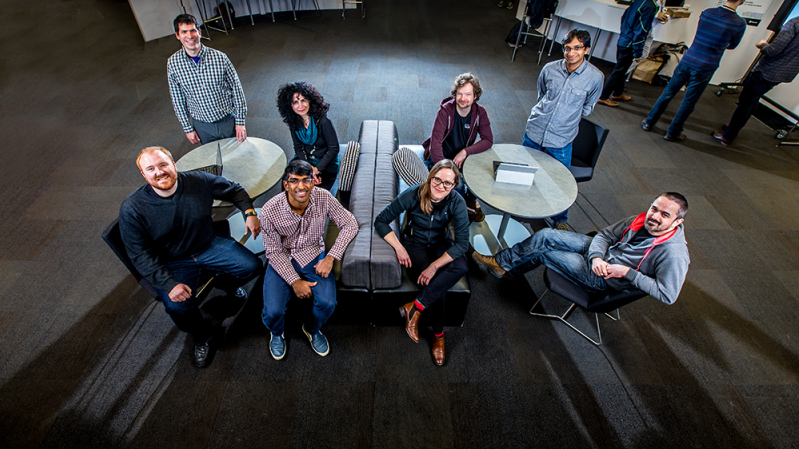
When Microsoft bought Mojang's intellectual property of Minecraft, it was not clear why the big company wanted to purchase a sandbox strategy game made up of a bunch of blocks, other than a way of making even more money. While it is true that Minecraft might be one of the biggest gaming franchises ever, it looks like there is more to Microsoft and Minecraft than money, but a way of developing Artificial Intelligence (AI).
According to PC World, Microsoft has decided to open source a platform used by its researchers to test artificial intelligence projects. This would be the AIX platform, which is already being used by Microsoft Research, and is available under a private beta to select academic researchers, allowing them to use the unstructured play of Minecraft as a testing ground for AI. This summer, AIX will be made available this summer under an open-source license.
The Microsoft Blog talks about the Microsoft Research lab in New York City, as five computer scientists are attempting to get a Minecraft character to climb a hill. Yes, this is something that any child can do if they have Minecraft on their console, PC, tablet, or smartphone, but here's what is different: these five programmers have to teach that artificial intelligence player to learn how to do things like climb to the highest point in the Minecraft virtual world.
It means that the AI agent starts out knowing nothing at all about its environment or what it is going to accomplish, other than it needs to figure out what is important, which is going uphill. It needs to understand the difference between the light and the dark, which involves a lot of trial and error. In other words, that AI construct is like a baby and will grow-up in this simulation.
In fact, the purpose of running an AI agent through a Minecraft simulator is that it saves on the cost of building an actual robot and attempting to bring it to artificial life. Imagine if a real robot was built and placed in the Pacific Northwest similar to a Minecraft setting. Chances are, it would be having accidents that would require constant rebuilds and repairs, such as falling into water or from other high places. By putting that artificial intelligence through the virtual world of Minecraft, then it proves that the artificial intelligence program works. This would justify the need for building a robot body, and ensure that it would function properly.
AI has been in the news recently with Google DeepMind creating an AI program that can play the game Go. Google's AI program AlphaGo went up against player Lee Se-dol and won three straight games out of five.
It is very clear that Microsoft and Google are seeing the benefits of AI, and it is possible that they could perfect the programs they are creating, and we might have A.I. after all. Considering Google wants to create self-driving cars, this would just be one of the benefits for having a workforce powered by Artificial Intelligence. Speculative fiction has warned us of the downside of this, but it is exciting to see innovation gained in this AI field.







